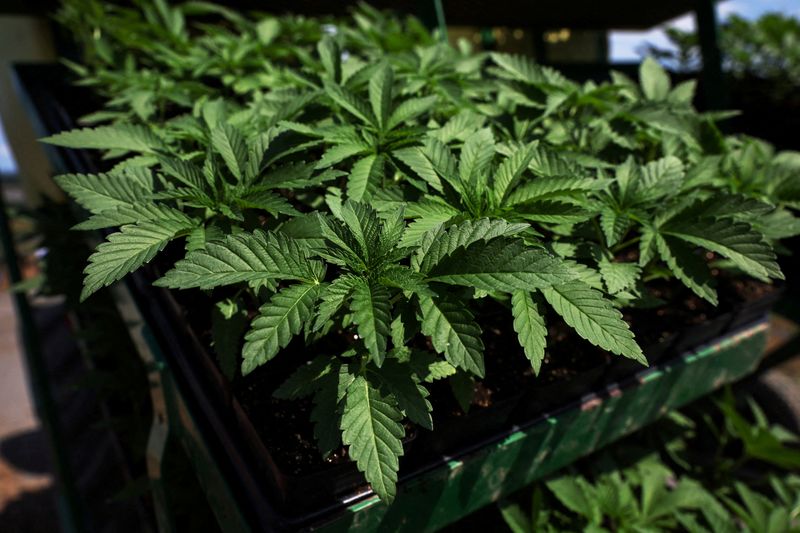By Moira Warburton
WASHINGTON (Reuters) - A U.S. Senate committee on Wednesday will vote on whether to advance a bill that would allow the legal cannabis industry access to banking, an option that industry lobbyists have long sought.
But even before the Senate Banking Committee takes up the Secure and Fair Enforcement Regulation Banking Act, nicknamed the SAFER Act, some in the industry say it is not enough.
They point to issues including Section 280E of the federal tax code, which states that businesses dealing in illicit substances cannot write off the costs of doing business from their taxes.
Critics include Cody Bass, owner of Tahoe Wellness, a cannabis dispensary in Lake Tahoe, California, who said he is facing $3.4 million in back taxes due to Section 280E.
"It's really meant to put you out of business. That was the intent of Congress when they passed this in 1983, it was intended for cocaine smugglers in Miami," Bass said.
The disconnect between the federal and state governments is concerning for the $13.2 billion legal marijuana industry.
The federal government lists cannabis as a Schedule 1 illegal drug, with no potential medicinal uses, making it even more strictly controlled than cocaine and fentanyl.
Meanwhile, 22 states have legalized cannabis either for medical or recreational purposes.
The legislation has been in the works for years, first introduced in 2013 by Democratic Senator Jeff Merkley.
"The industry's pretty frustrated that we're still talking about it," said Aaron Smith, CEO of the National Cannabis Industry Association, a coalition representing small cannabis businesses.
A 2022 poll from Pew Research found that 88% of Americans believed some form of cannabis should be legal, with 59% believing in legalization of both medical and recreational use.
Republican Senator Mike Rounds, a member of the Senate Banking Committee, said he continued to oppose SAFER.
"I just don't think that we should be, at this stage of the game, doing things that allow for the proliferation of businesses that market cannabis in the United States," he said. "I don't see a positive to that."

Merkley called the 280E issue "outrageous," but flagged the struggle of getting a supermajority of 60 senators to support anything cannabis-related.
"There's a possibility somebody may raise it when we get this bill to the floor," he said. "The challenge will be what can we add to keep the coalition together to in the end have 60 votes and get to a final vote?"